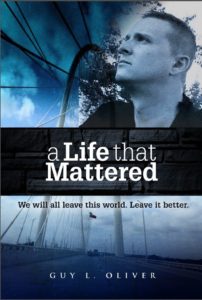“Hello?”
“Dad; it’s Tim.”
“Hi, Tim. It’s good to hear from you. How are things? Any progress on welding school?”
A catch in his voice.
“Well, that’s why I’m calling.”
“What’s wrong?
“I was all set. Mom had signed me up for this really great VoTech school. One of the best programs in the state. I was supposed to start in two weeks.”
“What happened?”
“I…”
Silence.
“I couldn’t pass the background check. I was rejected because of my felony convictions.”
These are the moments they don’t tell you about. The moments after prison when someone is simply trying to move forward and rebuild his life, but begins to experience the harsh aftermath. Like the aftershock after a terrible earthquake, the fragile constitution of a life is yet again threatened by the obstacles that inevitably beset the future plans of the prisoner, reformed to fit his current station.
The rest of us take for granted the notion that if we want to better ourselves we can simply enroll in a college or university, or study for additional certifications, or train for a new career. And for most of us this is a solid reality. For the convict, however, there is nothing simple as he goes about the process of reconstituting the shattered composition of his former existence.
The barriers they face demand a transformation most find not merely challenging but, at times, overwhelming.
Voting; traveling abroad; jury service; employment; holding public office; public assistance and housing; parental rights.
These basic elements of Western Civilization, considered fundamental rights by most of us, are stripped away from the former inmate at the time when they are most needed.
Consider this: the travesty of justice embodied in slavery was that the slave had no say in the bonds that kept him subjugated. He had no political or social voice. There was no platform or vehicle for change in which the slave could participate.
It was only after slavery came to an end that these human beings could initiate and foment the changes necessary to make themselves our equal. Further, it took the better part of a century to right the social injustice foisted upon them in part because they weren’t perceived as our equal immediately after slavery ended. The slave was freed in the legal sense but bound to his former caste by social and ethnic bigotry.
Change comes at a snail’s pace if it comes at all, and so it is with the former inmate.
As employers, we are loath to hire them, believing they are untrustworthy. As jurors, we dismiss them, believing that they are incapable of discerning truth because truth is not in them. As custodians of our children, we do not trust them to raise their own children, believing parental instinct does not abide in them. Most egregious of all, as voters, we bar them from having a say in all of these things.
No one understands the impetus behind this state of affairs better than I. As a law and order advocate, I have always understood the gravity of breaching the trust of our social compact. In a free country, you are presumed to be trustworthy until you violate the public trust, at which time your presumed trustworthiness is revoked.
The thing I overlooked, as do most of us, is the gravity of permanently revoking that trust. If the former prisoner cannot redeem himself because we strip him of the opportunity to do so, how can we say that justice has been properly served? We cannot. We have instead served punishment. And punishment is a poor substitute for justice.
As I spoke with my son on the phone that day, my heart broke. Not just because of the pain I heard in his voice, but because I was confronted with his new reality. A reality I hadn’t previously considered. I came to the violent realization that the consequences of his actions reached much farther than the loss of his liberty and the desperation incarceration breeds.
Our state and social laws had branded his own personal scarlet letter on his very existence as he lived it day to day.
“Son, I know it feels like the end of the world right now.”
“I’m trying so hard to be a better man and to do the right thing and to make good choices. I just feel like at every turn something gets in the way. It’s like nobody will give me a chance—and that’s all I’m asking for. I just want the chance to do right.”
“I know. But there are other schools. We just have to find the right one for you, and we will, son. I promise you we will find just the right school. And we’ll get you enrolled and in a few months you can start this new chapter of your life and soon this will all seem like a bad dream. But I need something from you. Something that only you can give me.”
“What’s that?”
“I need you to soldier up. The situation in which you now find yourself was years in the making. It didn’t happen overnight and it will take some time for you to right your capsized life. On the other side of this circumstance is the life you want—the life I want for you. I need you to do this for me because I believe in you. Giving up is not the thing; perseverance is the order of the day.
Do you remember when you were little that I taught you and your sisters about the Gila Monster?”
I listened and could almost hear the smile forming in the words of his reply.
“Yes.”
“And what did I tell you about Gila Monsters?”
“You said they don’t just bite. You said they hang on to their prey until it dies.”
“Yes, son. They’re tenacious little bastards that don’t give up until they have what is rightfully theirs. Now when we get off phone here, I want you go talk to your mother and we’re going to help you get what’s rightfully yours. A vocation that will earn you a good living and open up doors for you. But it will require tenacity, perseverance, and determination on your part. Can you do that for me son?”
“Yeah, dad. I can do that.”
“Well let’s go get this thing done. And son?
“Yes?”
“I love you and I’m in your court. We’ll get through.”
And this was the nature of our time together. He would fall and I would help him up. And each time it was a little less traumatic and the trauma less protracted.
Like a toddler learning to walk, my son began to embrace life once again.


